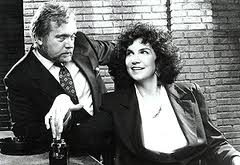There is an oft-repeated cry from certain corners of the creative community lamenting the lack of political theatre on our stages. Yet I seriously doubt that the Republican Theatre Festival is what they had in mind.
I say this not to criticize the festival, currently on in Philadelphia, but because the conventional wisdom is that theatre is almost exclusively a liberal art. Those who want more stage politics presumably seek more activism on the part of left-leaning artists, not right wing-rhetoric.
Personally, I think there’s a place for theatre that addresses opinions across the political spectrum. But first and foremost, it needs to be good theatre, and I’m not sure that proclaiming theatre as liberal or conservative, Republican or Democrat, right or left wing does the work any favors either. Those labels are most likely to limit potential audience, rather than letting the work on stage speak for itself, artistically and politically. I don’t advocate telling any audience precisely what they should think of what they see, regardless of its content.
I can easily identify some well-known works of theatre that could be, at least on their face, considered conservative. In Annie, doesn’t the mega-rich Oliver Warbucks (wonder how he made his fortune, given that Dickensian last name) use his wealth to manipulate the Democratic administration to aid him in his efforts on behalf of a single child, while thousands go homeless? Doesn’t Our Town promote an idealized vision of a bygone era, leaving us longing for the simpler days when small town life was a microcosm of the world at large? How To Succeed In Business Without Really Trying may poke fun at corporate ideals, but it seems to retain healthy affection for the very thing it gently satirizes.
These are, of course, simplistic and selective viewpoints presented for effect, not out of conviction. So let me turn to a popular play of almost 25 years’ vintage that can legitimately be viewed as conservative, or Republican, in its values, yet was a significant popular hit in its day: Jerry Sterner’s Other People’s Money.
OPM is the story of a privately-owned wire factory that becomes the subject of a takeover by a corporate raider, pitting the business mores of the 1980s against a small firm that is, in the view of the predatory protagonist, “worth more dead than alive.” It ran for several years Off-Broadway, played in numerous regional and stock productions and even spawned a Danny DeVito movie of the same name. At no time do I recall it being taken to task for its politics, even as limos lined up on narrow Minetta Lane before and after performances on behalf of the Wall Street crowd that embraced it; its dramaturgy was oft-questioned, but not its worldview. I was paying close attention, because the production that played in New York had originated at Hartford Stage while I was its public relations director.
I recall observing, and running, some of our post performance discussions of OPM in Hartford, where the audience consistently sided with Garfinkle, the raider, against Jorgensen, the factory owner, deriding the latter as out of touch and deserving of what came his way. I remember the line of businessmen at our box office windows at lunchtime, overturning the perception of women as theatrical decision makers and ticket buyers in their households. I watched throughout the brief Hartford run and lengthy New York run as a previously unknown playwright because a favored speaker at corporate annual meetings and business gatherings.
Coming at the end of the Reagan presidency and playing well into that of George H. W. Bush, OPM was an emblem of its era. But, cloaked in the comforting guise of a boulevard comedy, it was dismissed by serious critics for perceived theatrical deficiencies – although audiences lapped it up – allowing it to stealthily spread the philosophy of Milken and Boesky far and wide even as their era of rapaciousness began to wane.
I have often spoken of OPM with affection, for a variety of reasons – it was the first successful commercial transfer with which I had a role (albeit small); it gave me a chance over its long run and subsequent productions to see how a play changed every time a different actor went into the same production; I grew very fond of the show’s lead producers, who belied any stereotype of that profession. It is only in retrospect that I have considered the show’s messages, both implicit and explicit, more deeply.
But the play serves as a superb example of catching more flies with honey when it comes to disseminating a specific philosophy in the realm of theatre. The production didn’t shy away from trumpeting the bold-faced business names that attended with regularity, or its business setting, but it didn’t label the show as being for any particular segment of the audience either. In one of its slogans – “Greed. Lust. Power. Laughter. Nightly.” – certainly exploited some deadly sins, but I daresay that could have been applied to many shows, including those seeking to denounce those principles.
I have no qualms about the current Republican Theater Festival, especially since it may introduce some previously unheard voices to mainstream theatre and I applaud it for attempting to bring infrequently heard theatre viewpoints to light, even if I might not agree with them at all. As the now archly conservative David Mamet recently said of avowedly liberal Tony Kushner, “I’ll let [him] work his side of the street and I’ll work mine.” Indeed, there are two sides to every street, but all of those roads lead us to the theatre, where art trumps didacticism every time, no matter the perspective.




